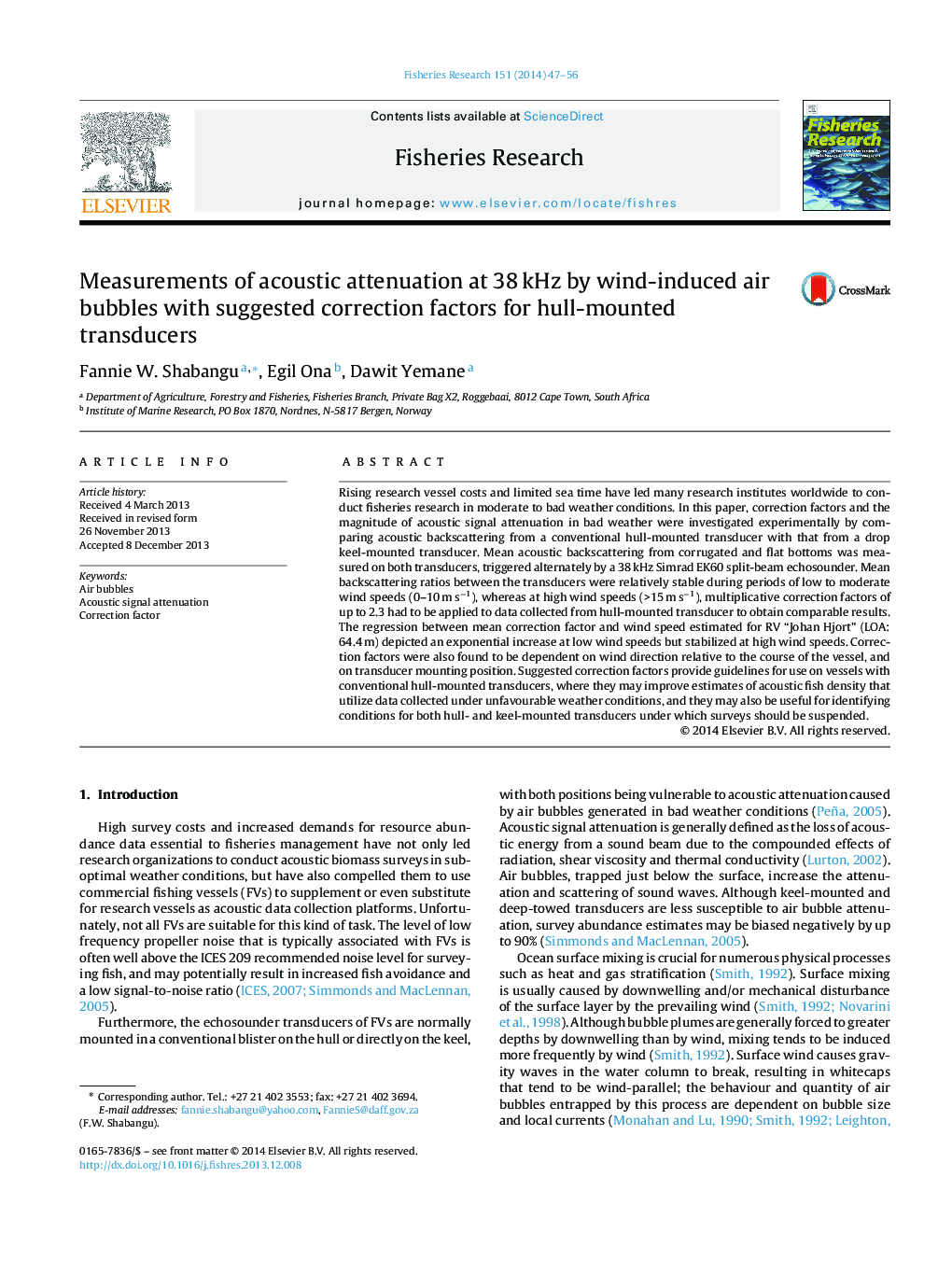| Article ID | Journal | Published Year | Pages | File Type |
|---|---|---|---|---|
| 6385942 | Fisheries Research | 2014 | 10 Pages |
Rising research vessel costs and limited sea time have led many research institutes worldwide to conduct fisheries research in moderate to bad weather conditions. In this paper, correction factors and the magnitude of acoustic signal attenuation in bad weather were investigated experimentally by comparing acoustic backscattering from a conventional hull-mounted transducer with that from a drop keel-mounted transducer. Mean acoustic backscattering from corrugated and flat bottoms was measured on both transducers, triggered alternately by a 38 kHz Simrad EK60 split-beam echosounder. Mean backscattering ratios between the transducers were relatively stable during periods of low to moderate wind speeds (0-10 m sâ1), whereas at high wind speeds (>15 m sâ1), multiplicative correction factors of up to 2.3 had to be applied to data collected from hull-mounted transducer to obtain comparable results. The regression between mean correction factor and wind speed estimated for RV “Johan Hjort” (LOA: 64.4 m) depicted an exponential increase at low wind speeds but stabilized at high wind speeds. Correction factors were also found to be dependent on wind direction relative to the course of the vessel, and on transducer mounting position. Suggested correction factors provide guidelines for use on vessels with conventional hull-mounted transducers, where they may improve estimates of acoustic fish density that utilize data collected under unfavourable weather conditions, and they may also be useful for identifying conditions for both hull- and keel-mounted transducers under which surveys should be suspended.
